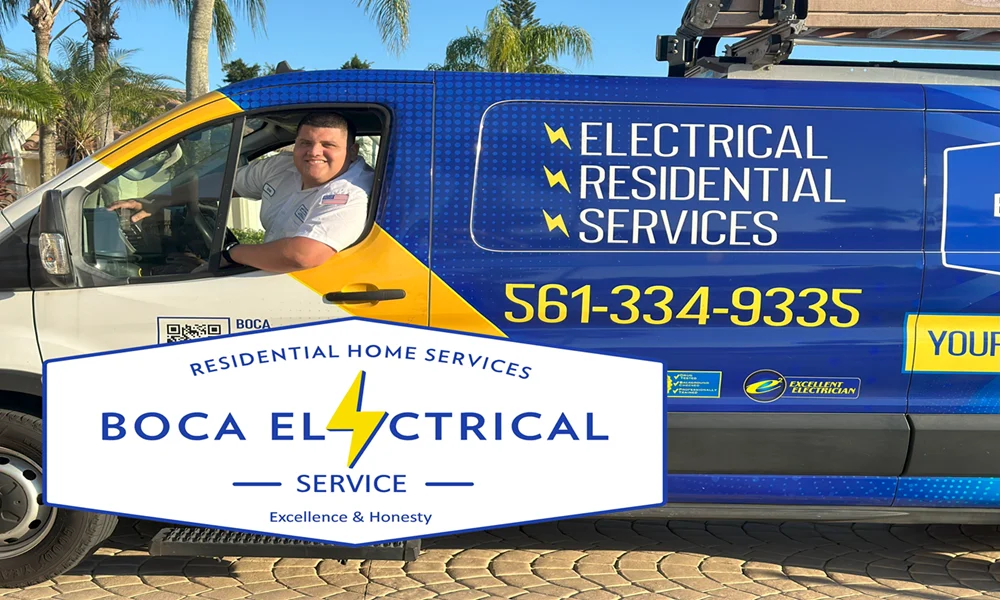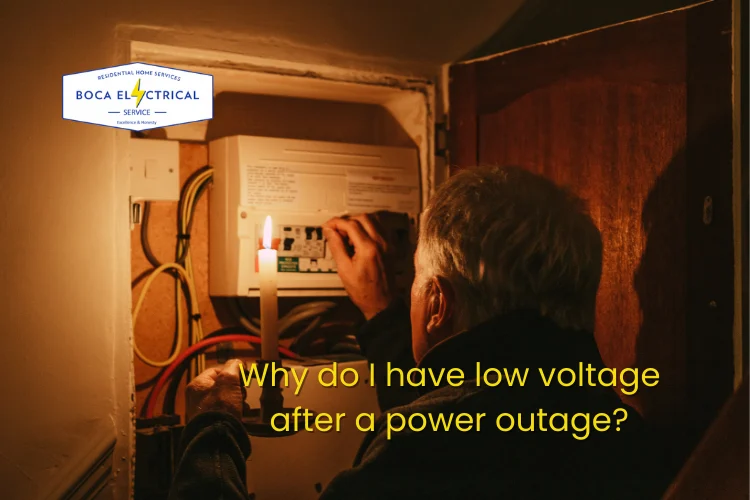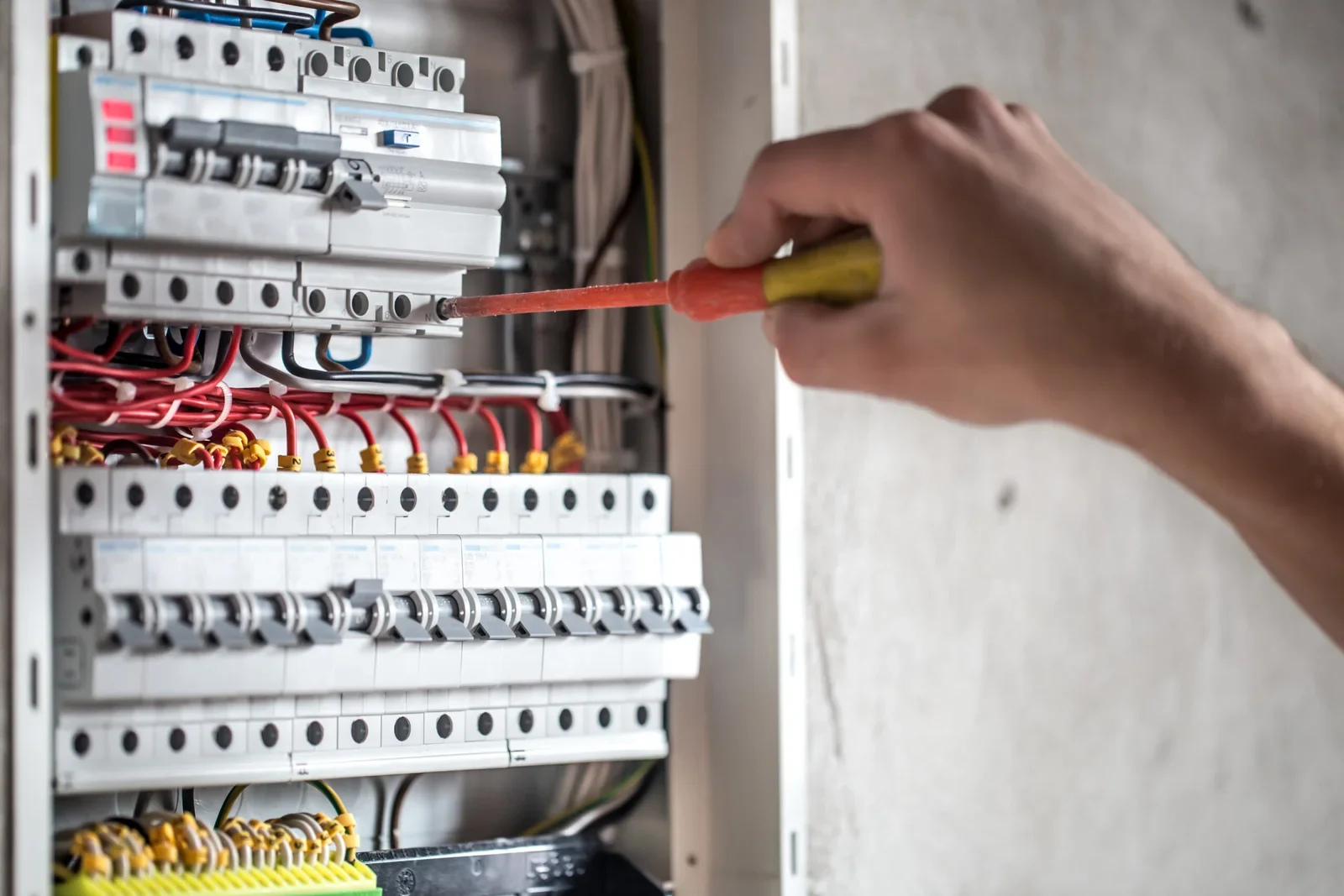Introduction to Electrical Emergency Services
Electrical emergency services are essential components of modern safety and infrastructure, focusing on addressing urgent electrical issues that can pose significant risks. These services are critical in preventing potential dangers, such as electrical fires, electrocutions, and extensive property damage. When electrical systems malfunction, immediate action is necessary to rectify the situation, highlighting the imperative nature of these services in both residential and commercial settings.
Several situations necessitate the involvement of emergency electricians. For instance, a sudden power outage during extreme weather can lead to the failure of essential home systems, such as heating or refrigeration, thereby endangering residents. Similarly, exposed wiring or unusual burning smells emanating from electrical outlets signal severe underlying problems that require prompt attention. In commercial establishments, electrical emergencies can disrupt operations, leading to significant financial losses and potential safety hazards for employees and customers alike.
Emergency electricians play a vital role in this landscape. They possess specialized training and expertise to assess and resolve a wide range of electrical emergencies quickly and efficiently. Their responsibilities include diagnosing the issue, implementing immediate repairs, and ensuring that the premises are safe for reoccupation. Additionally, they educate property owners on preventative measures to avoid future emergencies, emphasizing the importance of regular electrical inspections and maintenance.
In summary, electrical emergency services are indispensable for maintaining safety and protecting property from the risks associated with electrical failures. By understanding the nuances of these services and having access to qualified emergency electricians, individuals and businesses can significantly mitigate the dangers of electrical hazards, ensuring a safer environment for all. Regular maintenance and swift action during emergencies are key to preserving the integrity of electrical systems.
Common Electrical Emergencies
Understanding common electrical emergencies is crucial for both safety and preparedness. Among the most frequent types of electrical emergencies are power outages, which can occur due to various reasons, including severe weather, equipment failure, or accidents. Signs of an impending power outage may include flickering lights or unresponsive electrical devices. Homeowners should be aware that power outages can disrupt daily life and, in some cases, may signify deeper issues with the electrical infrastructure.
Another prevalent electrical emergency is electrical fires, which can arise from overloaded circuits, faulty wiring, or even malfunctioning appliances. These fires not only pose significant risks to personal safety and property but also lead to severe economic losses. Homeowners should familiarize themselves with the warning signs of an electrical fire, such as a burning smell, unusual sounds from outlets, or scorch marks, as early detection can prevent tragic outcomes.
Downed power lines represent a critical electrical emergency that can occur due to storm damage or vehicle accidents. This situation poses an immediate threat, not just to those nearby but also to emergency responders. Individuals encountering downed lines should avoid approaching them and instead report the situation to local authorities to ensure proper safety protocols are followed.
Exposed wiring is another alarming electrical emergency that often results from DIY repairs or wear over time. This type of issue can lead to shocking hazards or electrical fires. Homeowners should regularly inspect their wiring and be mindful of signs such as frayed cables, unusual heat at outlets, or persistent tripping of circuit breakers. Recognizing these common electrical emergencies is the first step in ensuring safety and preventing disastrous situations.
When to Call an Electrical Emergency Service
Electrical emergencies can arise unexpectedly, often causing significant risks to safety and property. Recognizing the appropriate circumstances for contacting an electrical emergency service can be crucial for mitigating potential hazards. Generally, it is advisable to seek professional assistance when one notices any warning signs indicating an electrical issue.
Some indicators that necessitate contacting an emergency electrician include frequent power outages, flickering lights, and burning smells emanating from outlets or electrical panels. Each of these signs can point to underlying electrical problems that may escalate if left unaddressed. For instance, persistent flickering lights may suggest faulty wiring or overloaded circuits, both of which pose severe risks. Other warning signals include tripped circuit breakers that refuse to reset and a sudden increase in energy bills without a clear explanation. Such irregularities can indicate electrical malfunctions requiring immediate attention.
Attempting to resolve electrical issues independently can lead to greater dangers, particularly in hazardous situations. DIY solutions may provide temporary fixes but often fail to address the root cause of the problem, which can lead to recurring issues or even create new ones. Issues such as exposed wiring, short circuits, or water exposure in electrical components demand professional expertise to ensure safety and compliance with local codes. Moreover, negligence in handling these situations can result in serious injuries or catastrophic property damage due to electrical fires.
In light of these factors, it becomes evident that awareness of when to call an electrical emergency service is vital. Proactive measures in recognizing and responding to electrical anomalies can ultimately protect both life and property. Therefore, it is crucial to prioritize safety and engage qualified electricians when faced with vague electrical concerns.
How to Find a Reliable Electrical Emergency Service
Finding a reliable electrical emergency service is crucial for ensuring that your electrical issues are addressed safely and efficiently. The first step in the process is conducting thorough research. Start by searching online for local electrical emergency services in your area. Many companies maintain a web presence that includes information about their services, qualifications, and service hours, which can give you a preliminary sense of whether they might meet your needs.
It is essential to check the credentials of the electrical service providers you are considering. Look for licensure, insurance, and certifications specific to the electrical trade. Licensed technicians are more likely to adhere to safety regulations and industry standards, which can significantly impact the quality of their work. Additionally, opt for companies that provide proof of insurance, as this protects both you and the technicians in case of any incidents during the repair process.
Another valuable resource in your search are customer reviews. Websites such as Google, Yelp, or Angie’s List offer insights into past customers’ experiences with various electrical emergency services. Pay attention to the specifics of the reviews, focusing on comments regarding the promptness of service, quality of work, and customer service. Positive reviews can often indicate a trustworthy provider, while negative feedback may serve as a warning.
Lastly, asking for recommendations from friends, family, or neighbors can be an effective way to identify reputable electrical emergency services. Personal referrals often provide insights that online reviews cannot. Collecting recommendations from trusted individuals can also lead to discovering service providers with a proven track record in your community.
What to Expect During an Electrical Emergency Service Call
When you experience an electrical emergency, the initial contact marks the beginning of a crucial response process. Upon reaching out to an emergency electrical service, you can expect the operator to gather essential information about the situation. This includes details such as the nature of the electrical issue, the specific location, and any relevant safety concerns, like sparking outlets or power outages. Clear communication at this stage, allowing the electrician to prioritize urgent cases, is vital.
Following the initial conversation, a qualified electrician will arrive on-site to evaluate the situation comprehensively. Upon arrival, they will assess the existing electrical systems, identify the source of the problem, and determine the extent of the damage. This assessment is critical in ensuring a safe and effective repair process. Electricians are trained to recognize the signs of potential hazards and will take necessary precautions, such as shutting off power from the main circuit if required to prevent further complications.
After diagnosing the problem, the electrician will likely propose several solutions. Some issues might require immediate remediation, while others could be resolved with temporary fixes to restore power and ensure safety until a more permanent solution can be applied. It is essential for customers to remain nearby and accessible during this time, as the electrician may need to discuss findings and recommend further actions or repairs. Additionally, having any necessary access to electrical panels and pertinent documentation, such as previous service records, can expedite the process.
Understanding what to expect during an electrical emergency service call can help ease the experience. Being prepared, communicating openly with the electrician, and following their guidance ensures that the situation is handled effectively and safely.
Costs Associated with Electrical Emergency Services
When faced with electrical emergencies, understanding the potential costs associated with hiring professional electrical emergency services is vital. Pricing can vary significantly based on multiple factors, including the nature of the emergency, the time of day, and the location where the service is required. Typically, electrical services may charge on an hourly basis, and rates for emergency interventions often differ from those for standard services. On average, hourly rates can range from $75 to $150, reflecting the technician’s skill level and the urgency of the situation.
One of the primary factors influencing the cost is the time of service. Emergency electricians may impose higher charges during weekends, holidays, or late-night calls, typically referred to as “emergency rates.” This surge pricing compensates for the inconvenience of unscheduled service requests. Additionally, geographic location plays a critical role; urban areas usually have elevated costs relative to rural settings, owing to the increased cost of living and the higher demand for rapid response.
Another aspect to consider is the type of work that needs to be performed. Simple fixes, such as replacing a fuse or repairing minor wiring issues, may incur lower fees; however, more complex problems, such as failed circuit breakers, can escalate costs significantly. Customers should also prepare for potential additional fees, such as for parts or materials needed during repairs.
When engaging with electrical emergency services, it is advisable to seek detailed estimates upfront. Reputable service providers will furnish transparent, written estimates that outline labor costs, material expenses, and other potential charges. Understanding these factors can help homeowners and businesses make informed decisions when choosing electrical emergency services, ensuring they receive not only quality work but also fair pricing.
Preventive Measures to Avoid Electrical Emergencies
Preventing electrical emergencies requires a proactive approach that encompasses regular maintenance, safety checks, and proper education regarding the use of electrical appliances. One of the fundamental strategies is to conduct routine inspections of electrical systems and infrastructure. Homeowners and businesses alike should consider hiring licensed electricians to assess wiring integrity, circuit breakers, and overall system functionality at least once a year. This professional evaluation can help identify potential hazards before they escalate into serious issues.
Additionally, ensuring proper use and maintenance of electrical appliances plays a crucial role in avoiding emergencies. Users should always read manufacturers’ instructions and adhere to safety guidelines, as improper use can lead to short circuits or overheating. Moreover, appliances should be regularly examined for frayed wires, unusual sounds, or burning smells, which can indicate malfunction and slow deterioration. Should any concerns arise, it is advisable to unplug the device immediately and seek professional assistance.
Another vital preventive measure is the installation of Ground Fault Circuit Interrupters (GFCIs) in areas prone to moisture, such as kitchens and bathrooms. GFCIs can automatically shut off electrical circuits when they detect anomalies, thus protecting against electrical shock. It is equally important for homeowners and business operators to stay informed about the risks associated with extension cords and power strips. Overloading these devices often leads to electrical fires; therefore, limiting their use and opting for direct outlet connections when possible is wise.
Lastly, educating all family members or employees about electrical safety can significantly mitigate risks. Establishing rules regarding the proper use of electrical equipment, avoiding the use of multiple devices on a single outlet, and ensuring children are aware of hazards can foster a safer environment. By embracing these preventive measures, individuals can greatly reduce the likelihood of facing electrical emergencies.
Legal and Safety Considerations
When dealing with electrical emergencies, understanding legal and safety considerations is paramount. Electricians must possess the appropriate licenses and certifications to carry out their work in compliance with local regulations. Licensing requirements vary by state or region, and such mandates ensure that only qualified professionals engage in electrical services. Employing unlicensed individuals not only violates regulations but can also result in severe repercussions, including financial penalties and liability for any resultant accidents.
Consumer rights play a critical role in electrical work. Homeowners should be aware of their rights concerning service quality and warranties. When hiring electrical services, consumers must ensure that they have clear contracts detailing the scope of work, timelines, and payment terms. Transparency in communication is vital to avoid misunderstandings that may arise during emergencies. Additionally, consumers should verify if the electrical service provider carries insurance, which protects them against potential damages or injuries that might occur during the job.
Safety regulations are designed to protect both workers and consumers from electrical hazards. Adhering to these standards is necessary to mitigate the risk of accidents, electrocution, and fires caused by faulty wiring. Electricians are required to follow guidelines outlined in codes such as the National Electrical Code (NEC) in the United States, which provides comprehensive standards for safe electrical installation and maintenance. Compliance with these safety protocols not only ensures the well-being of all parties involved but also upholds the integrity of the electrical systems in use. Understanding these legal and safety considerations fosters a safer environment and promotes responsible electrical practices that all stakeholders must prioritize.
Conclusion and Final Thoughts
Electrical emergencies can pose significant risks, not only to property but also to the safety of individuals. Throughout this blog post, we have outlined crucial aspects that underline the importance of being prepared for such situations. Understanding the nature of electrical issues and recognizing warning signs can help homeowners and businesses mitigate risks effectively. Preventive strategies, such as regular inspections and maintenance, play a vital role in ensuring electrical systems are functioning safely and efficiently.
Equally important is knowing when to seek professional assistance. While minor issues may be manageable, certain situations require the expertise of licensed electricians. Attempting to handle complex electrical problems without adequate knowledge and training can lead to dangerous outcomes, including electrical shocks and fire hazards. Therefore, familiarity with reliable electrical emergency services is paramount. Having the contact information of local professionals readily available can save valuable time during a critical situation.
Moreover, educating oneself and others about electrical safety practices contributes to a safer environment. Simple measures such as installing smoke detectors, using surge protectors, and ensuring that all electrical installations comply with safety regulations are essential steps that every property owner should take. These proactive measures can significantly reduce the likelihood of electrical emergencies and enhance overall safety standards.
In conclusion, being informed and prepared is crucial when it comes to electrical emergencies. By understanding the signs of potential issues, knowing when to call for professional help, and implementing preventive measures, individuals can shield themselves from potential harm. Emphasizing electrical safety in our homes and workplaces will foster a culture of awareness and ultimately contribute to a safer community.
If you’re facing an urgent electrical issue, don’t wait. Call us anytime at
(561) 320-8539 or visit us at 158 NW 16th St #2, Boca Raton, FL 33432 . Your safety is our top priority. With over 38 years of combined experience, Boca Electrical Services is the trusted name South Florida relies on for emergency response.







